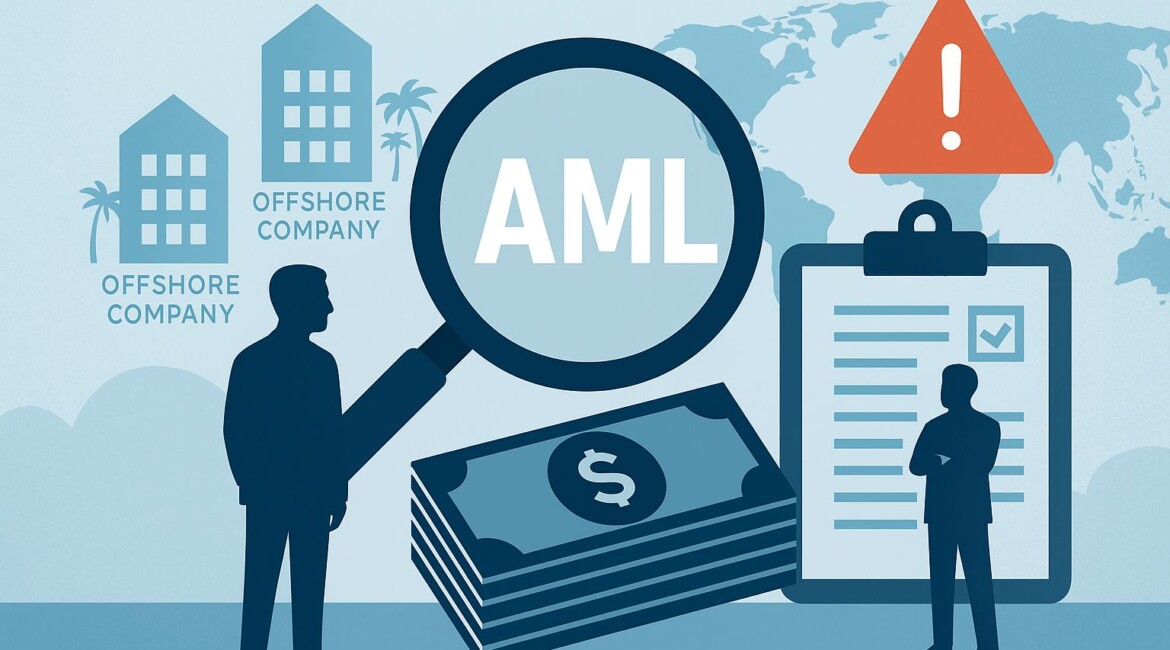
Passing AML Checks for Offshore Clients: A Practical Guide for Solicitors
Successfully navigating Anti-Money Laundering (AML) compliance is essential for solicitors, especially when representing offshore clients. AML obligations aren’t merely regulatory hurdles, they actively protect your firm against risks such as fraud, money laundering, terrorist financing, and tax evasion. Failing to comply can expose your practice to severe legal, financial, and reputational consequences.
Solicitors as Gatekeepers
Solicitors are central to the fight against financial crime, holding a key responsibility under the Money Laundering Regulations 2017. As legal professionals, we must:
- Conduct comprehensive client due diligence (CDD).
- Identify and verify ultimate beneficial owners (UBOs).
- Assess and document sources of wealth and funds.
- Continuously monitor transactions for suspicious activity.
The Solicitors Regulation Authority (SRA) emphasises that firms must maintain robust AML frameworks, particularly for offshore clients, whose complex ownership structures often raise additional scrutiny.
Understanding Offshore Clients
Offshore clients typically include entities or individuals based in jurisdictions commonly known as offshore financial centres or tax havens, such as the British Virgin Islands, Cayman Islands, Jersey, or Seychelles. While many offshore structures (companies, trusts, foundations) serve legitimate purposes like asset management, estate planning, and international investment, their complexity and secrecy also heighten the risk of misuse.
Recognising Legitimate Uses and Identifying Red Flags
Legitimate offshore structures typically support:
- Tax efficiency and estate planning.
- Cross-border business or joint ventures.
- Regulatory and compliance benefits.
- Asset protection and confidentiality.
However, certain warning signs should prompt closer inspection, including:
- Opaque or excessively complex corporate structures.
- Nominee directors or shareholders without clear justification.
- Shell entities lacking substantial operations or economic substance.
- Frequent use of high-secrecy jurisdictions without clear business reasons.
Key Lessons from the Panama Papers
The 2016 Panama Papers leak highlighted how offshore structures could be misused for illicit purposes, reinforcing the need for solicitors to exercise increased vigilance. The fallout prompted tighter global regulations and underlined the importance of thorough due diligence in legal practice.
FATF Red Flag Indicators
When handling offshore clients, be particularly mindful of the following indicators:
- Unnecessary complexity in legal or corporate structures.
- Arrangements involving nominees hiding true ownership.
- Entities operating from secrecy-focused jurisdictions.
- Delegation of significant control to third parties without justification.
- Frequent and seemingly purposeless financial transfers.
- Shell entities established without genuine business operations.
High-Risk Jurisdictions
Solicitors must stay informed about jurisdictions classified as high-risk by the Financial Action Task Force (FATF) and UK government advisories. Currently, jurisdictions such as North Korea, Iran, and Myanmar are subject to enhanced due diligence.
Summary of Your AML Obligations
Passing AML Checks for Offshore Clients includes:
- Clearly identify and verify beneficial owners with certified documents and public databases.
- Thoroughly review corporate structures, scrutinising organisational charts for nominee roles or unclear ownership chains.
- Carefully document and verify the sources of wealth and funds, ensuring clear differentiation between the two.
- Apply enhanced due diligence (EDD) for complex arrangements or high-risk jurisdictions, documenting rationale and obtaining senior management approvals as
necessary. - Perform thorough sanctions and Politically Exposed Persons (PEPs) screening.
- Maintain clear, organised, and audit-ready AML records for at least five years.
Common Pitfalls and How to Avoid Them
To protect our practice, we avoid:
- Accepting unclear or undocumented ownership explanations.
- Failing to reassess client risk when new information emerges.
- Over-relying on third-party referrals without independently verifying client information.
Conclusion
Passing AML Checks for Offshore Clients is critical in maintaining our firm’s integrity and safeguarding your professional reputation. Solicitors must embrace a proactive approach, documenting every decision clearly, managing risks diligently, and staying alert to evolving regulatory requirements. This approach ensures you meet expectations and effectively mitigate risks associated with offshore matters.
📞 Contact us today to discuss whether we can help you.
This article is intended for general information only, applies to the law at the time of publication, is not specific to the facts of your case and is not intended to be a replacement for legal advice. It is recommended that specific professional advice is sought before relying on any of the information given. © Jonathan Lea Limited.
